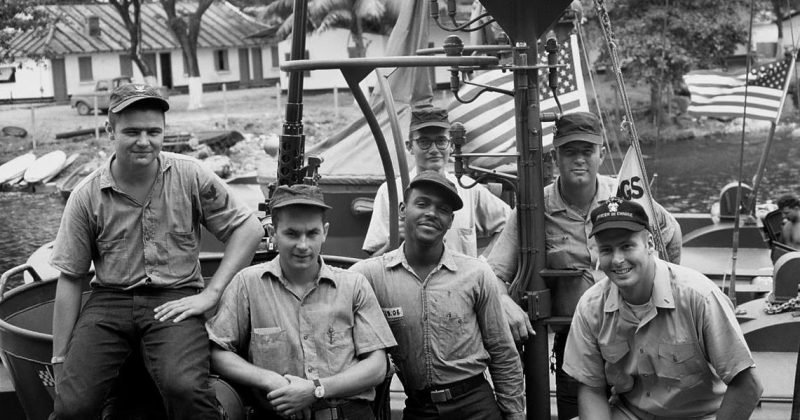War History Online presents this guest article by Dan Daly.
Just over 50 years ago as a junior officer, I arrived in Coronado California to meet my crew and begin three months of US Navy Swift Boat training. This program would lead to a 12-month combat tour in Vietnam. During that year, on board PCF 76, we would patrol along the coast and rivers of South Vietnam.
Our crew of six was young. We were all volunteers, ranging in age from 18 to 26. As the Officer in Charge, I was 23. We soon grew into a combat hardened team facing deadly firefights, dangerous boredom and brutalizing weather. This was tempered by esprit de corps and camaraderie.
Our boat, PCF 76 was destroyed in heavy weather. We had four men wounded but lost no one. Twelve months later, all together, we boarded that plane and headed home. Physical scars were few. Mental scars appeared to be just as scarce. We were proud of our service and the job we had done.
We expected few greetings upon our return, which, outside of our families, was all we received. Unlike today, there was no “Welcome Home” or “Thank you for your service.” There were no handshakes, no flags unfurled, or smiles of recognition. In the decades that followed, little changed for many Vietnam Vets. Our crew was fortunate, as we built new lives for which we are most thankful.
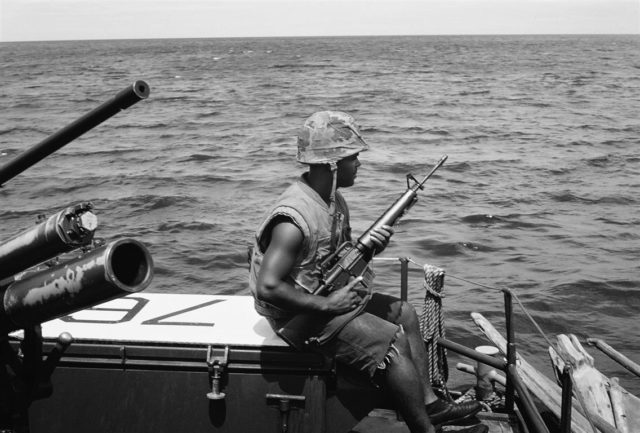
Regretfully, for many veterans who served, this was not the case. They were assigned, or perhaps carried the guilt for a war that belonged not to them but to the politicians. Life struggles, flashbacks and nightmares were all too common among these veterans. Help was slow in coming or difficult to secure. I saw these challenges firsthand serving on the Board of the large New England Center for Veterans.
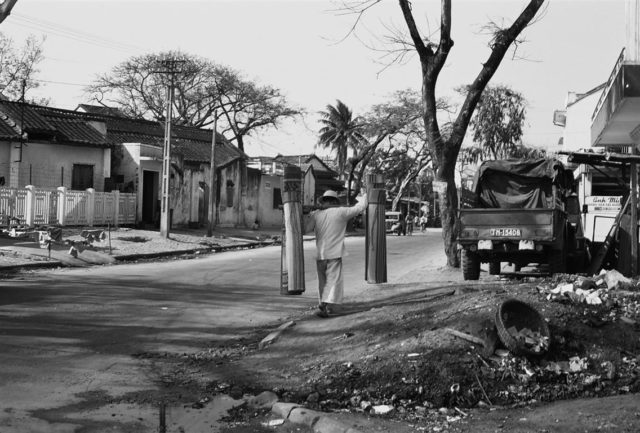
Homelessness, mental illness and addiction were commonplace. At the Center, we saw the chronic cases because they were the ones that could be identified. Tragically, in the shadows, were individuals who often suffered in silence destroying their lives as well as those of the loved ones around them.
Over time, measured not in years but decades, help became available. Post Traumatic Stress Disorder (PTSD) was identified and treatment became available. Funding was increased and attention was given to the rehabilitation of those physically wounded. This effort was primarily driven by government entities with some private charitable support. Still, there was no broad-based or national recognition of the sacrifices that these men and women, Vietnam Veterans, had made in the service of their country.
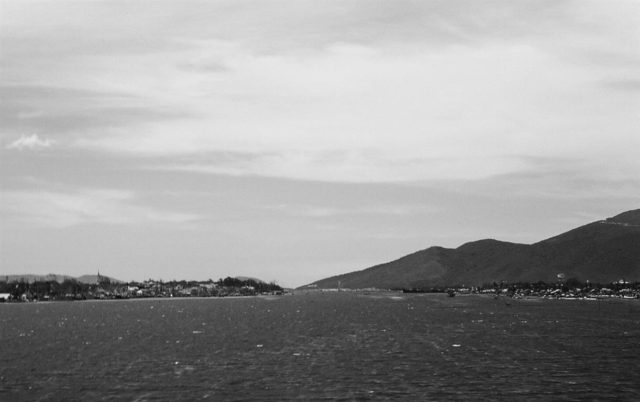
The Vietnam War was something the American public wanted to forget. Included along the way were those individuals who had served, suffered and died in Southeast Asia. Books were written and movies were made but often they focused on the dark side, not the hundreds of thousands who did their duty and served with pride. All the while, these troops were making sacrifices day in and day out, that most could not comprehend.
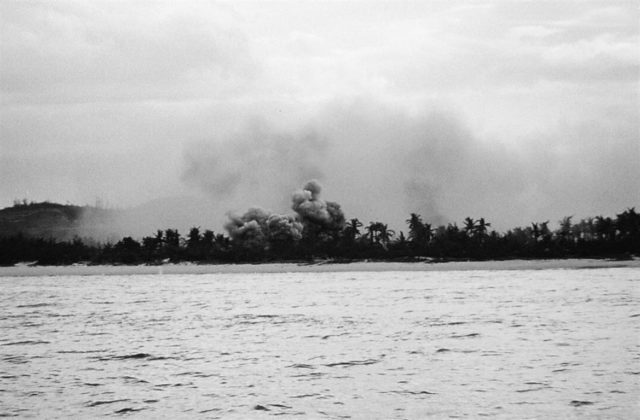
In the 1990s with the global involvement in the Middle East, the public’s attitude towards veterans began to change for the positive. While people may not have supported military action, they did support the troops, now men and women, especially upon their return home.
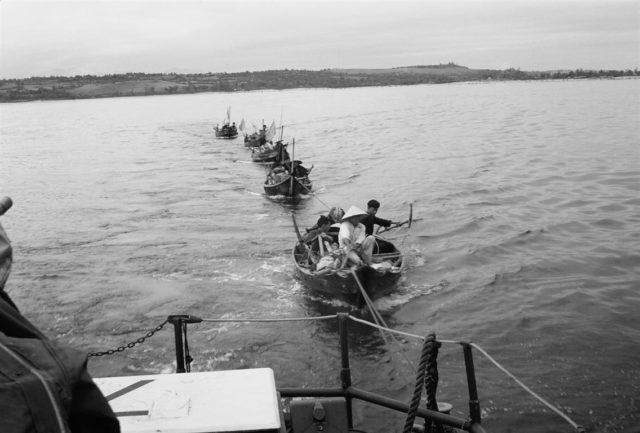
Greetings took place at far-flung airports in the middle of the night as returning troops touched down. Strangers, along with family, greeted them, small flags were held, handshakes and hugs were commonplace. Banners were hung over highways by friends and family welcoming the returning warriors. Just as important, the media covered these feel-good events and the stories were well received.
Regretfully, these events did not include those Vietnam Veterans who had also served with honor four decades before. They were left behind, largely ignored.
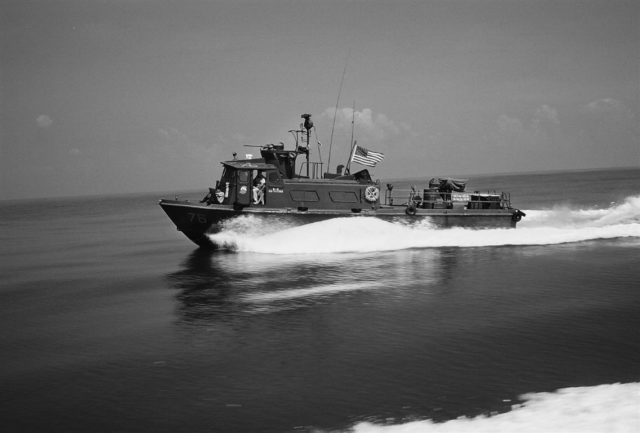
Then, something unique began to happen, and soon it was becoming commonplace. When an individual recognized that you were a veteran they said quite simply, “Thank You for Your Service.”
When and where you served was not a qualifying factor. You were a veteran. Young people, who were not even born during the Vietnam era, were comfortable with this message. This was especially rewarding. In most cases, there was no awkwardness; they simply said it to you. Often, this was accompanied by a handshake. The positive impact of these gestures on any veteran cannot be overstated.
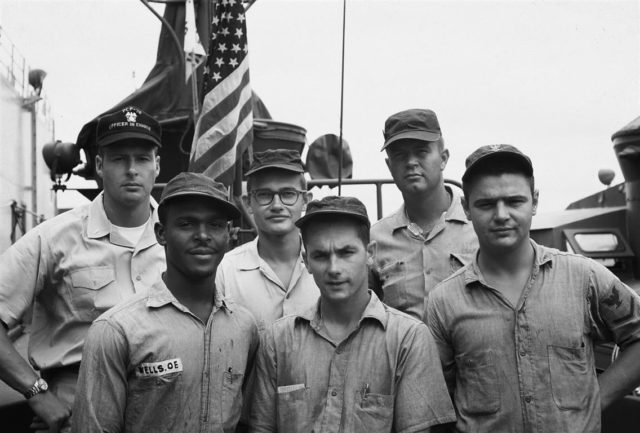
Ignoring the plight of thousands of veterans is not something any of us should be proud of. For many Vietnam Veterans, much of the damage was done. For myself and our crew on PCF 76, we were blessed and we are grateful for that. We share a bond, brothers in arms, proud of our service. If there is a lesson to be learned, it is a simple one, politicians make war, soldiers simply follow orders.
To veterans everywhere, “Thank You for Your Service.”
To my fellow Vietnam Veterans, I join in a hearty “Welcome Home”.
Dan Daly is the author of ‘White Water Red Hot Lead’, a memoir about his Swift Boat experiences in Vietnam. It is available from Amazon and the Casemate Publisher’s website.
